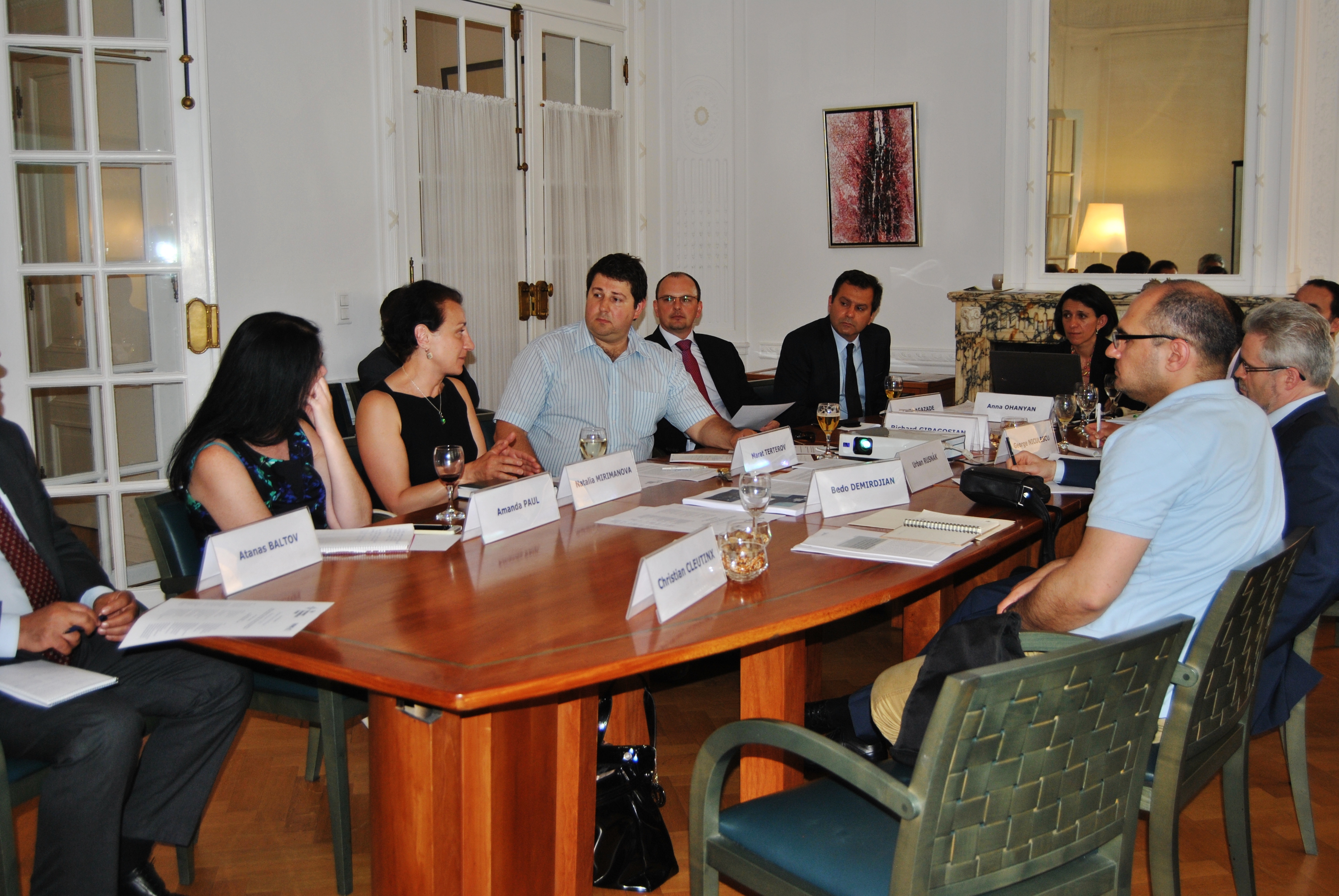Close
 Interactive discussion hosted by the European Geopolitical Forum
Interactive discussion hosted by the European Geopolitical Forum
On 18 June 2013, the European Geopolitical Forum (EGF) hosted an interactive discussion on “Conflict Management, Regionalism and Economic Integration in the South Caucasus: Does a light at the End of the Tunnel Exist?” in the hospitable premises of TUSIAD, Brussels. The debate was introduced and moderated by Dr. Marat Terterov, Executive Director, European Geopolitical Forum. It was attended by around 25 policy makers and experts from relevant Brussels-based international organizations (including NATO, the European Union, and the Energy Charter), NGOs, think tanks and embassies. The debate was opened through a comprehensive presentation by the special guest speaker, Prof. Anna Ohanyan of Stonehill College, Boston, USA, who elaborated on “Networked Regionalism as Conflict Management in Politically Divided Areas: the Balkans and the Caucasus”. Protracted conflicts in the South Caucasus have led to high transaction costs and missed opportunities for development in the region, as well as to high levels of unemployment and poverty in regional countries and non-recognized entities. To overcome the current deadlock in the resolution of these conflicts, Prof. Ohanyan proposed “regionalism as a crisis management strategy, which is a deliberate process of network cultivation across interest-based communities, with the intention of creating favorable conditions for compromises and peace agreements”. The views expressed by participants in the debate diverged on several accounts. However, most interventions eventually converged around the idea that careful synchronization of third party interventions and regional building processes could persuade key actors to abandon their prejudices against regionalism as an instrument of peace building and development in politically divided areas. A champion for regional integration – as was the case with the role of the EU in the Balkans – is still missing in the South Caucasus. Such a deficit continues to undermine regional building processes in the South Caucasus whilst further entrenching the regional geopolitical status quo.
 0 Pros
0 Pros 0 Cons
0 Cons
Comments 0